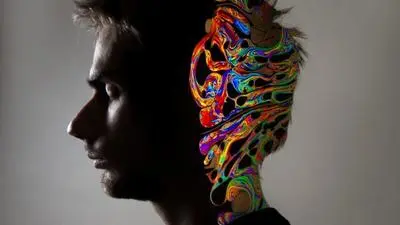The Philosophy of Psychedelics
Peter Sjöstedt-Hughes
About the Course
It's time to take psychedelics, and the experiences they produce, seriously. They have historical, ethical, aesthetic, and metaphysical significance, and are revolutionising Western culture. Join philosopher at the University of Exeter, Peter Sjöstedt-Hughes, to explore the philosophy of psychedelics.
By the end of the course, you will have learnt:
- The origins and history of psychedelics.
- What psychedelic experiences are.
- The ethics and aesthetic of psychedelics.
- What psychedelics reveal about consciousness and the nature of reality.
- The future of psychedelics; how we should utilise them.
IAI Academy courses are designed to be challenging but accessible to the interested student. No specialist knowledge is required.
About the Instructor
-
Peter Sjöstedt-Hughes
Peter Sjöstedt-Hughes is a leading psychedelic philosopher and philosopher of mind who specializes in the thought of Whitehead, Nietzsche, and Spinoza, and in fields pertaining to panpsychism and altered states of mind. Peter is the author of 'Noumenautics', 'Modes of Sentience' and co-editor and contributor of Bloomsbury’s Philosophy and Psychedelics (2022). Furthermore, Peter is a TEDx Talker on ‘psychedelics and consciousness’.
Peter is a research fellow and lecturer at The University of Exeter, where he coordinates both undergraduate and postgraduate modules on the philosophy of psychedelics.
Course Syllabus
-
Part One: The History, Ethics and Aesthetics of PsychedelicsIn this section, leading Philosopher, Peter Sjöstedt-Hughes delves into the history, ethics and aesthetics of psychedelics. Here, he explores the way psychedelics have been utilised within western and non-western cultures.
-
Part Two: The Metaphysics of PyschedelicsIn this section, Peter Sjöstedt-Hughes explores the metaphysics of psychedelics. He carefully examines the mystical, different ontologies as well as paying close attention to the ideas of Spinoza.
Suggested Further Readings
- Sjöstedt-Hughes, P., Modes of Sentience: The Philosophy of Psychedelics and Other Minds, (London: Psychedelic Press, 2021).
- Huxley, A., The Doors of Perception, (London: Vintage Classics, 2004 [1954]).
- Pollan, M., How to Change Your Mind: The New Science of Psychedelics, (New York: Penguin, 2018).
- James, W., The Varieties of Religious Experience, (London: Routledge, 2002 [1902]).
- Shulgin, A., & Shulgin, A., PiHKAL: A Chemical Love Story, (Berkeley: Transform Press, 1991).
- Grof, S., The Way of the Psychonaut: Encyclopedia for Inner Journeys, (Los Angeles: MAPS, 2019).
- Carhart-Harris, R. L., Psychedelics and the Science of Self-Experience, (Oxford: Oxford University Press, 2023).


